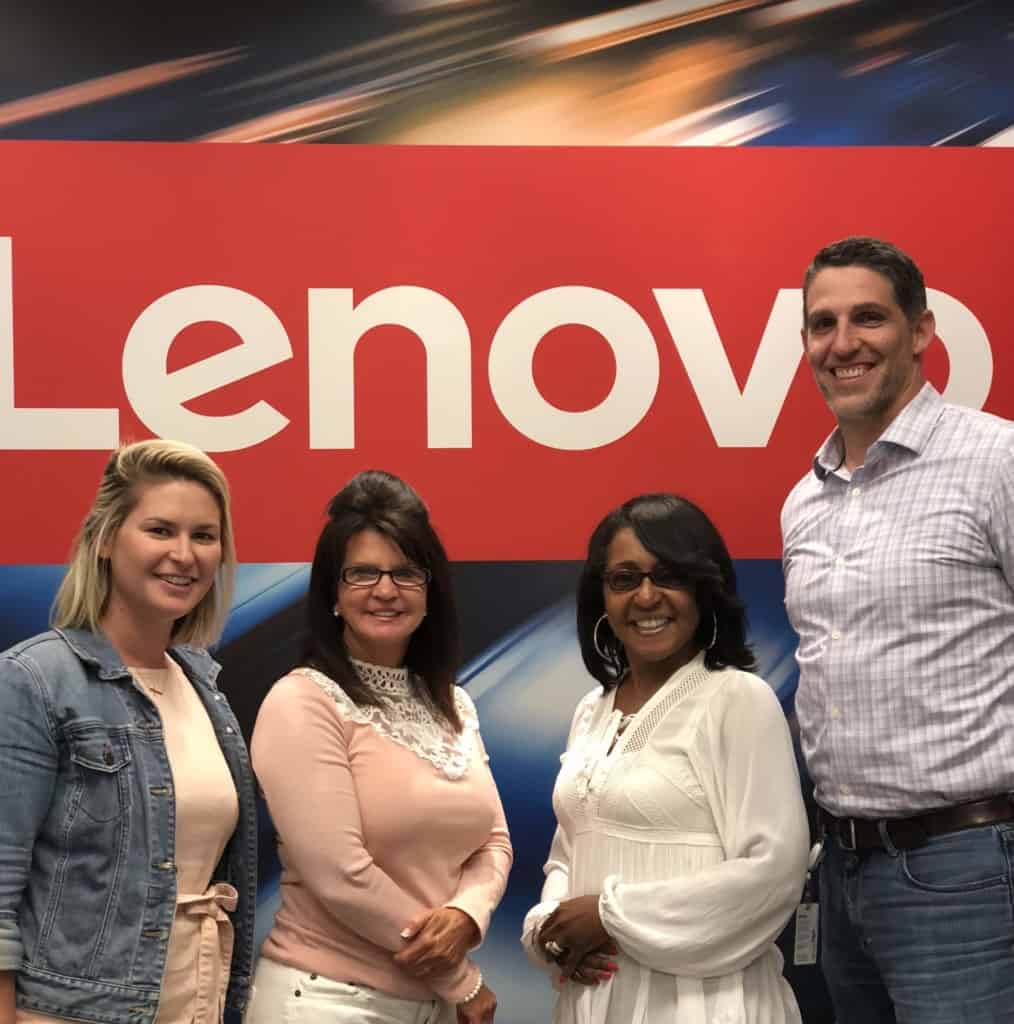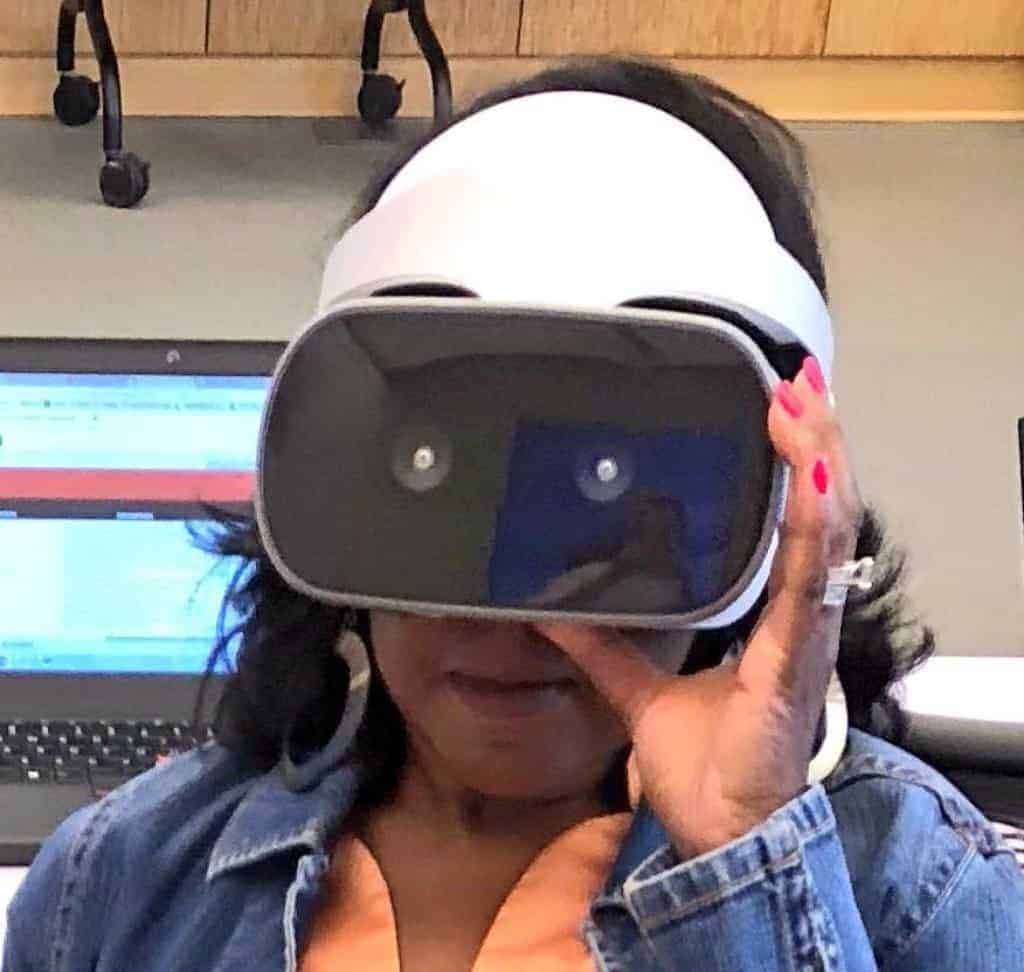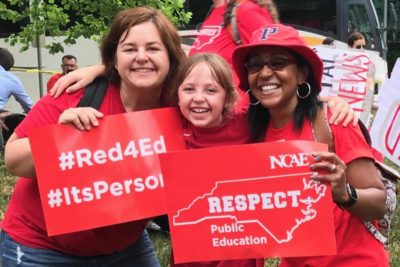Through a partnership with The North Carolina Business Committee for Education’s Teachers@Work initiative and Hope Street Group NC Teacher Voice Network, I was afforded a week-long externship at Lenovo that created a rich exchange of ideas, deep conversations, and knowledge about workforce skills to positively shift the trajectory of career opportunities for all students and educators in my school building. I framed a few guiding questions for this adventure as follows:
What could a school librarian gather from participating in a work-based learning experience?
How could a week-long encounter at a local business translate into solid learning experiences for students?

In a previous article, I highlighted that librarians are leaders who are dedicated to increasing student learning. This often means exploring professional learning (PL) opportunities, such as externships, to link to curriculum standards. Going into this externship, I knew it would add value to my teaching practice which would yield enriching learning encounters for my students.
When asked to reflect on this experience, I summed it up in one word — impact! Before I started this work-based PL opportunity, I knew that my school had Lenovo devices; however, I did not know this company’s expanding and comprehensive focus on a K-12 educational solution, dedicated to helping school districts transform their learning communities through digital innovation. It was totally eye-opening to explore the inner workings of Lenovo, including the briefing center, data center, and global supply chain plant. I discovered the vast options and resources that are available through Lenovo.
Through active learning experiences, including being immersed in virtual reality learning environments with nature, including some pretty cool giraffes, lions, and elephants and a field trip to explore the Taj Mahal, I experienced their commitment firsthand. I immediately started seeing some curriculum links for science and social studies, including studying biomes, regions, and historical treasures.

As I toured the facilities, I understood Lenovo’s strong obligation to providing the best experience to the end user, which are our students and teachers. This engagement is linked to humanitarian efforts, global connections, internships, and a talent identification pipeline for their employees. I was elated to gather more curriculum connections in providing a context of knowledge about humanitarian work.
One of the themes that I believe was most impactful was their slogan, “different is better.” This theme was both energizing and apparent throughout Lenovo. I thought about the times when I’ve endeavored to encourage our learning community to use a different resource or explore another digital application to enhance a student’s learning experience.
For me, it was another way to infuse the growth mindset. I received presentations, including opportunities to dialogue and ask questions. Lenovo employees were sincerely interested in an exchange of ideas to improve their educational strategies and customer satisfaction. The hands-on experiences provided a tangible demonstration of how exploring new ways to solve humanitarian problems, while increasing opportunities, were more than mere slogans.
This notion immediately lit a fire in me. I decided to fully incorporate this refreshing growth mindset theme, paired with the educational strategies, into my media center program for the upcoming school year. I plan to begin the year by looking at the way that Lenovo used their theme to shape their global brand, followed by an exploration of the ways that “different could be better” at our school.
From discovering how to maximize digital learning experiences through LanSchool Air and creating virtual reality adventures through Google Expeditions, my goal is to encapsulate how these digital learning platforms may be used with our students. This goes hand-in-hand with life-long learning skills, designed to prepare students for future career opportunities, which are a vital part of the library media program. For example, during media lessons, students are often divided into teams, a teaching strategy that fosters global collaboration, which is a 21st century workforce skill. My time at Lenovo generated an exchange of ideas and concepts that will make these times of learning more productive for students by being more intentional in implementing strategies to enhance classroom collaboration through LanSchool Air.
This work-based learning experience not only provided rich insight into the skills needed to work for Lenovo, but also included educational strategies, programs and services that make up this company. I knew that work-based learning could be a powerful way to breathe new life into my teaching strategies. The experience actually surpassed my anticipations. Lenovo’s message of seeking to become better to help students and teachers find the best digital tool has lasting learning implications in the K-12 career pathway planning.
To reiterate my opening question: What could a school librarian gather from participating in a work-based learning experience? The answer is a host of different, enriching ideas, digital innovations, and perspectives to spark curiosity for all students. Lenovo indicates, “Different rethinks, reimagines, and reinvents.” What a way to start the school year!



